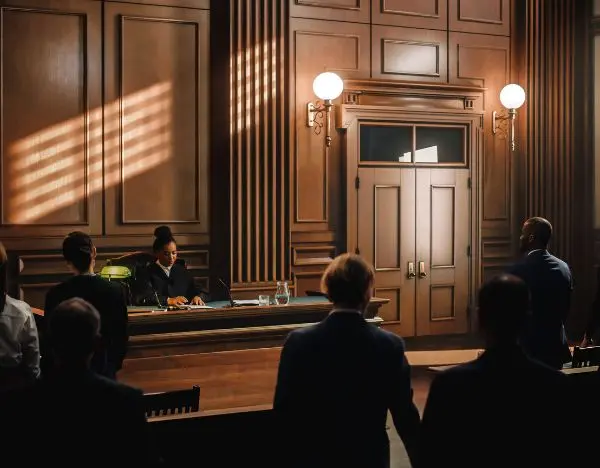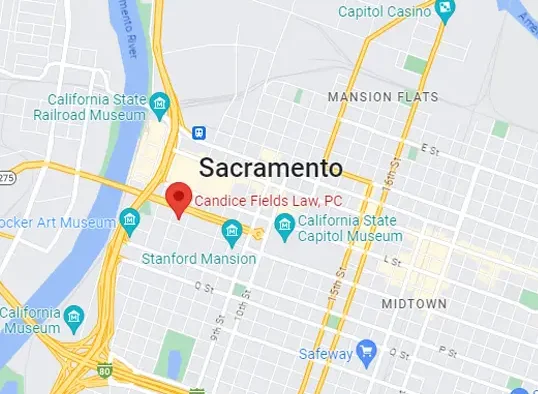What Happens After an Indictment?

Facing an indictment can be one of the most challenging moments in a person's life, marking the beginning of a formal legal process that can lead to a trial. At Candice Fields Law, PC, we understand the anxieties and uncertainties that accompany this phase. This blog aims to demystify the steps that follow an indictment, providing clarity and guidance for those who find themselves in this daunting situation.
What is an Indictment?

An indictment is a formal charge or accusation of a serious crime. It represents the formal decision by a grand jury that there is enough evidence to charge someone with a felony offense, indicating that the case should proceed to trial. Here’s a breakdown of how it works and what it entails:
The Grand Jury Process
- Formation: A grand jury, typically consisting of 16 to 23 citizens, is convened to review evidence presented by the prosecutor.
- Evidence Review: Unlike a trial jury, a grand jury doesn't determine guilt or innocence. Instead, it reviews evidence and witness testimonies to decide whether there is probable cause to believe a crime has been committed and that the accused is responsible.
- Secrecy: The proceedings are confidential, designed to protect the accused's reputation in case the jury decides not to indict, and to encourage witnesses to speak freely.
- Decision: If the grand jury finds sufficient evidence, it issues an indictment. If not, it can return a "no bill," effectively dismissing the case.
Significance of an Indictment
- Formal Accusation: It formally brings charges against the accused, moving the legal process from investigation to prosecution.
- Legal Rights: The indictment informs the accused of the charges, allowing them to prepare a defense.
- Trial Preparation: Following an indictment, the case proceeds towards trial, with both sides preparing their arguments.
What Happens After an Indictment?
An indictment is a formal charge issued by a grand jury, indicating that there is enough evidence to charge someone with a crime. The grand jury declares that the prosecution has sufficient evidence to bring the case to trial. This process is primarily used in the federal court system and for felony charges in state courts.
Initial Appearance and Arraignment
After an indictment, the first step is the initial appearance, followed by an arraignment. During the initial appearance, the defendant is formally advised of the charges against them and their rights. The arraignment is where the defendant will enter a plea (guilty, not guilty, or no contest). It is crucial to have legal representation at this stage to protect your rights and navigate the complexities of your plea options.
Bail and Pretrial Release
Following the arraignment, the court will consider bail or pretrial release conditions. Bail is intended to ensure the defendant's appearance at future court dates. The conditions of bail or release are determined based on the severity of the crime, the evidence against the defendant, and the defendant's past criminal record and community ties.
Discovery Process
The discovery process follows, where the defense and prosecution exchange information relevant to the case. This includes witness lists, evidence, and any other materials that will be used at trial. Our role is to thoroughly review this material, looking for inconsistencies or evidence that can support your defense.
Pretrial Motions
Before the trial, various pretrial motions can be filed by either party. These motions can request the court to rule on certain legal issues, exclude evidence, or even dismiss charges under certain circumstances. Strategic use of pretrial motions can significantly impact the outcome of a case.
Trial Preparation
Preparing for trial involves developing a comprehensive defense strategy, including gathering evidence, preparing witnesses, and planning the defense's presentation. Our experienced team at Candice Fields Law, PC, works meticulously to build a strong case on behalf of our clients.
The Trial
If the case proceeds to trial, both sides can present their case to a judge or jury. The prosecution must prove the defendant's guilt "beyond a reasonable doubt." The trial process includes opening statements, witness testimony, cross-examinations, and closing arguments.
Sentencing
If a defendant is found guilty, the case moves to sentencing. The judge will determine the appropriate punishment based on the severity of the crime, the defendant’s criminal history, and other factors. Sentencing can range from fines and community service to imprisonment.
Appeal Process
After sentencing, the defendant can appeal the conviction or sentence. Appeals can be based on claims of legal error, violations of constitutional rights, or procedural issues that affected the trial's fairness.
Signs You May Be Facing an Indictment for a White-Collar Crime
Recognizing early signs that you might be facing an indictment for a white-collar crime can give you a crucial advantage in preparing your defense. White-collar crimes, often involving allegations of fraud, embezzlement, tax evasion, and other financial misconduct, can lead to serious legal consequences. Here are key signs that may indicate an impending indictment:
1. Receipt of a Target Letter
One of the clearest signs is receiving a target letter from a federal prosecutor. This letter informs you that you are the target of a grand jury investigation, specifying the nature of the investigation and inviting you to provide testimony.
2. Subpoenas for Documents or Testimony
If you or your business receive a subpoena requesting documents or compelling testimony before a grand jury, it’s a strong indication that an investigation is underway. Subpoenas can be directed at financial records, emails, or other documents related to the alleged crime.
3. Search Warrants
The execution of a search warrant on your property, home, or business by law enforcement agencies is a significant indicator that you are under investigation for a serious offense.
4. Interviews and Questioning of Associates
When colleagues, business partners, or employees are interviewed by federal agents or receive subpoenas, it may signal that you are being investigated. Law enforcement might be gathering evidence and testimonies related to your activities.
5. Freezing of Assets
In cases involving serious financial crimes, you might find your assets or bank accounts suddenly frozen. This action typically requires a court order and indicates that authorities are taking steps to preserve potential evidence or proceeds of crime.
6. Changes in Professional Relationships
If your bank, auditors, or legal counsel suddenly becomes less communicative or ends their relationship with you without clear reason, it could be due to them receiving subpoenas or being advised to limit interactions due to an ongoing investigation.
7. Notification by a Financial Institution
Banks and financial institutions may notify you if they've been required to provide your financial records to law enforcement agencies, indicating that your financial transactions are being scrutinized.
8. Increased Scrutiny at Work
If you’re facing internal audits, investigations, or increased scrutiny over your professional actions more than usual, it could be related to an external investigation you’re unaware of.
9. Consultation Request from Law Enforcement
Being asked to speak with law enforcement or federal agents directly, especially without clear reasoning provided, can be a precursor to more formal charges being pursued.
10. Advice from a Legal or Financial Advisor
If your attorney or financial advisor suggests you might be under investigation, or recommends getting legal representation, it’s wise to take this advice seriously.
What To Do If You Have Been Indicted
Being indicted can be a profoundly unsettling experience, marking the transition from investigation to formal charges against you in a criminal case. Here’s a guide on the steps you should take if you find yourself in this situation:
Stay Calm and Composed
First and foremost, it’s important to remain calm. An indictment is a serious matter, but panicking can impair your judgment and hinder your ability to take constructive steps forward.
Understand the Charges
Make sure you fully understand the charges against you. An indictment will outline the specific crimes you are accused of, which is crucial for forming your defense.
Hire a Criminal Defense Attorney
As soon as possible, retain a competent criminal defense attorney experienced in handling cases similar to yours. A skilled lawyer can navigate the complexities of the legal system, advise you on the best course of action, and work to defend your rights and interests.
Do Not Discuss Your Case
Avoid discussing the details of your case with anyone other than your attorney. This includes friends, family, and especially law enforcement or prosecutors. Anything you say can potentially be used against you.
Comply with Court Orders
Following an indictment, there may be court orders such as bail conditions or pretrial release conditions. Complying with these orders is vital to avoid further complicating your case.
Gather Documentation and Evidence
Start compiling any documents or evidence relevant to your case. This could include emails, financial records, or anything else supporting your defense. However, do this in consultation with your attorney to ensure you’re collecting information legally and effectively.
Prepare for the Legal Process
Familiarize yourself with the legal process ahead. Your attorney can explain the steps involved, from arraignment and pretrial motions to trial and, if necessary, sentencing. Understanding this process can help reduce anxiety and prepare you for what’s to come.
Discuss Your Defense Strategy
Work closely with your defense attorney to discuss your strategy. This may involve challenging the prosecution's evidence, negotiating a plea bargain, or preparing for a trial. Your attorney will advise on the best strategy based on the specifics of your case.
Take Care of Your Mental Health
Facing criminal charges can be emotionally and mentally taxing. Consider seeking support from a mental health professional to help you cope with the stress and anxiety of the situation.
Stay Engaged with Your Defense
Stay actively engaged with your defense. Attend all legal appointments, court dates, and meetings prepared and on time. Being proactive in your defense can make a significant difference in the outcome of your case.
Need Defense After an Indictment?
If you've been indicted, acting swiftly to protect your rights and future is crucial. Candice Fields Law, PC, has experience in defending against white-collar criminal charges, offering the experience and support you need. Contact us now for a confidential consultation, and let us help you navigate this challenging time. Your defense starts today.





